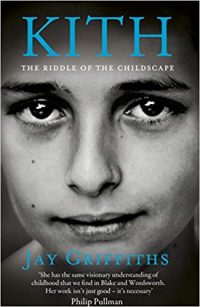Kith: The Riddle of the Childscape

In Kith, Jay Griffiths asks why that is, and through her examination of the very nature of childhood, exposes how contemporary society is denying children the time, space and place to enact their child nature, with serious consequences.
While travelling the world in order to write her award-winning book Wild, Jay Griffiths became increasingly aware of the huge differences in how childhood is experienced in indigenous cultures. From communities in West Papua and the Arctic to the ostracised young people of contemporary Britain, she asks why we have enclosed our children in a consumerist cornucopia but denied them the freedoms of space, time and deep play. She uses anthropology, history, philosophy, language and literature to illustrate children’s affinity for the natural world, for animals and woodlands, and examines the quest element of childhood. Arguing that the risk-averse society enfeebles children, robbing them of the physical freedom they both want and need, Griffiths illustrates how the stress of overscheduled lives denies children their hours of unclocked reverie.
Kith examines the history of breaking the will of the child and explores issues of childhood privacy, contemporary surveillance, the importance of folk tales, children’s relationship with pets and the profound politics of childhood. It looks at the extraordinary psycho-drama played out when Settler children, taken by Native Americans, refused to be rescued, and includes the way children have seized power over their own lives. A book of stories, it includes the one real-life Lord of the Flies situation – with the result the reverse of Golding’s bleak vision.
